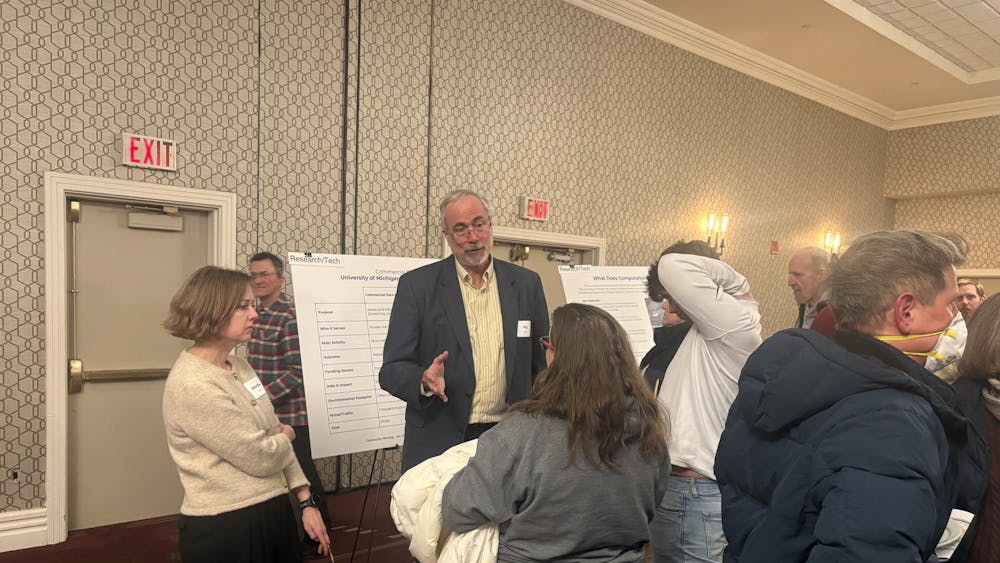Faculty and students alike are growing concerned about Halle Library. The library’s collection budget receives only $120 for each EMU student, as opposed to the $200 per student average that is given by other universities to their libraries. The sparse funding has forced Halle to cut millions of dollars in academic materials.
On Feb.1, Bob Kelly, the collection development librarian at EMU, gave a presentation in front of the faculty senate as a plea for better funding. The presentation compared the rates of funding that EMU gives to its library, compared to peer universities Central Michigan and Grand Valley State. Kelly’s presentation showed that Halle Library receives a much smaller share of EMU’s general fund, than that of its peers.
According to the budget presented, Central Michigan gives 1.28 percent of its general funds to its library for materials collection, GVSU gives 1.51 percent of it’s budget. Only .97 percent of the university’s general fund is being allocated to the library’s materials collection budget. This means EMU gives 30 percent less to its library than CMU or GVSU.
To combat this deficit, Halle Library has been steadily cutting its less important academic subscriptions. These include academic journals, access to electronic databases and magazine subscriptions.
The amount of money given to Halle Library from the university’s general fund has not been dramatically increased or decreased for several years. However, according to Tara Fulton, dean of the library, the cost of academic materials has been inflating at a rate of five percent to eight percent each year. This inflation has forced the university to make cuts every year, just to stay afloat.
In 2005, the library administrators created a report of the nearly 200 journal and magazine subscriptions it had been forced to cancel in that year alone.
“The university library’s allocation for the purchase of journals, books and databases has remained unchanged for the past several years,” the 2005 report read. “Just to keep pace with inflation, the library must cancel about $150,000 worth of journals and other standing order commitments each year.”
With the 2005 cuts, Halle saved around $150,000. These cuts were made based on how often the resources were used and how important the materials were. Among those cut in 2005 was Reader’s Digest, Cosmopolitan and Queen’s Quarterly.
In 2006, another report was released with another list of hundreds of cut subscriptions, resulting in another $150,000 saved. The library has been cutting hundreds of subscriptions nearly every year since 2005. In 2011, Halle was forced to make an even bigger set of cuts, this time resulting in a necessary $329,000 of savings. This most recent round of cuts included the International Journal of Sports Medicine, Michigan Middle School Journal and the American Journal of Psychology.
Fulton said these issues are not exclusive to Halle.
“Academic libraries have been facing this inflation problem for more than a decade,” Fulton said. “So the general problem is not unique to Eastern.”
EMU Student Government President Jelani McGadney and Mallory Apel expressed their concern for Halle to EMU administration in a letter on Feb. 7. Their letter asked for more consideration to be given to the library’s materials budget.
“It has come to our attention that our library will be forced to choose to provide the necessary tools for this academic community’s success or make further cuts that none of us can endure,” the letter reads.
“Originally, the library was able to make smart cuts, but we’re in a situation now where we have nothing left to cut,” McGadney said. “Even if we cut journals, that will affect student research and then there’s cuts that we don’t want—we’ll have to cut student services.”
They received a formal letter back from the administration, saying they would do their best to remedy this problem.
“Part of it is a priority issue, I hope the university will make this a priority,” McGadney said. “I do take them seriously, and I trust that they will.”









